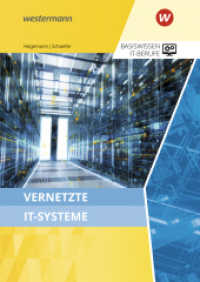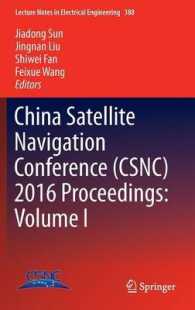Full Description
Synthesizing decades of collective experience into a set of practical guidelines for students and budding researchers, the authors of this book introduce a systematic approach to generating, processing, and interpreting reliable and valid speech data. They review a variety of observational and experimental tasks that allow researchers to collect natural speech, elicit specific types of speech, and assess language comprehension.
Guidelines for generating data sets by transcribing and coding raw speech data are also reviewed, as are special considerations for working with infants and multilingual children.
Contents
Preface
Acknowledgments
Introduction
I. Fundamentals of Language Acquisition Research
The Challenge of Studying Language
Preparing to Work With Children, Schools, and Families
Creating the Data I: Working in Teams, Basic Data Collection, Data Sharing, and Data Management
II. Experimental and Observational Methods in Language Acquisition Research
Studying Language Acquisition Through Collecting Speech
Introduction to Experimental Methods: Design and Analysis
Experimental Tasks for Generating Language Production Data
Experimental Tasks for Generating Language Comprehension Data
The Grammaticality Judgment Task
III. Managing and Interpreting Speech Data
Creating the Data II: Begin Data Processing
Creating the Data III: Preparing for Data Analysis
Interpreting the Data: Scientific Inference
IV. Special Considerations in Language Acquisition Research
Assessing Multilingual Acquisition
Introduction to Infant Testing Methods in Language Acquisition Research
Conclusions and Proceeding to the Future
Appendix A. Transcription Symbols
Appendix B. The International Phonetic Alphabet
Appendix C. Outline for Preparation of Schematic Research Proposal
Suggested Readings
References
Index
About the Authors







